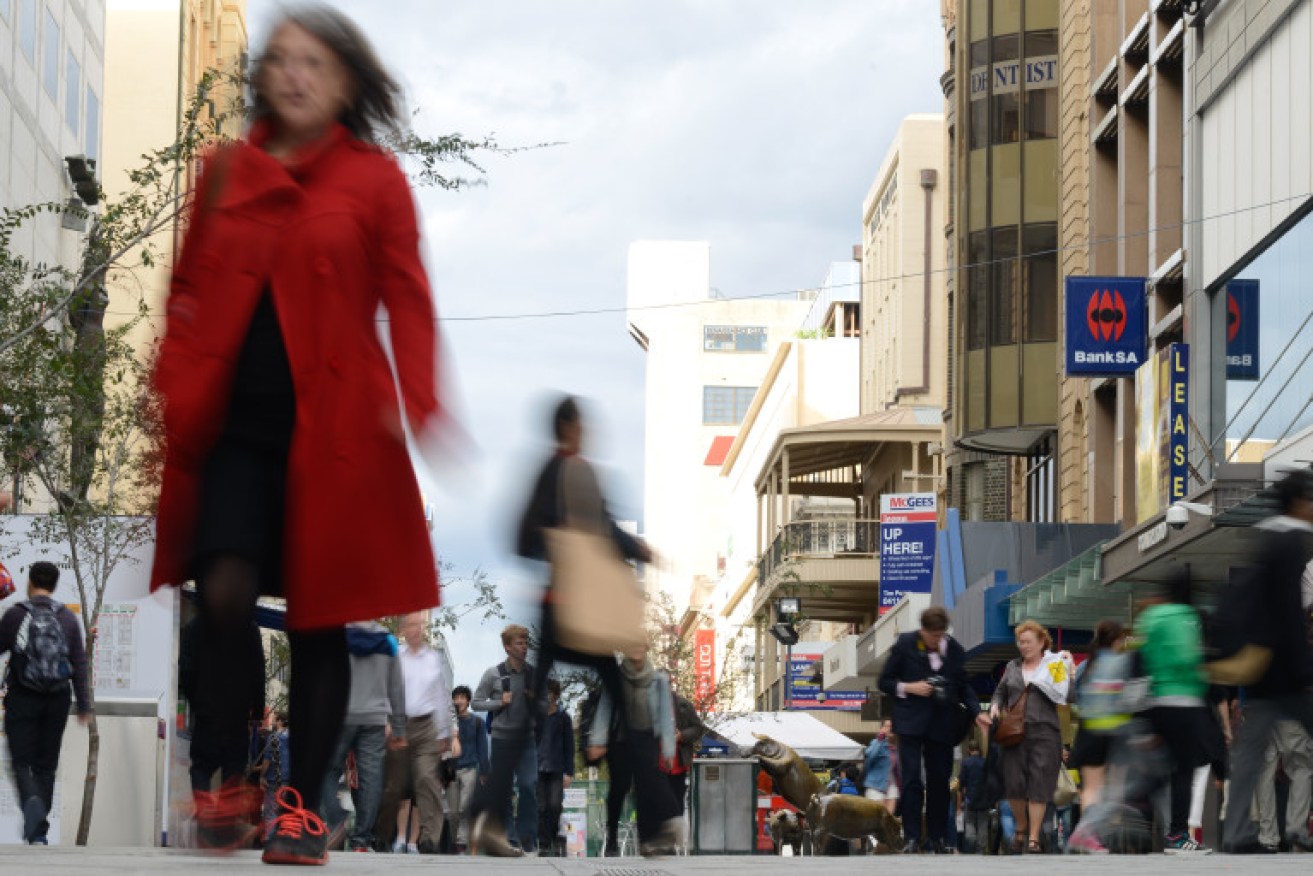Hold skilled migration until SA economy improves

Is South Australia delivering on its promises to skilled migrants? Photo: Nat Rogers/InDaily
Far from being the land of new opportunities touted by the State Government, new migrants are finding South Australia riven with high unemployment.
More than 15,000 permanent migrants settle in South Australia every year, although not all stay. Over the past five years, 9,265 skilled migrants were successfully nominated by the State Government. Many also bring their families.
We need a five-year moratorium on state-nominated migration as we’re creating a burgeoning underclass of migrants – a ‘precariat’ of marginalised unemployed and under employed contract workers. The term comes from Guy Standing’s book, The Precariat: The New Dangerous Class (2011), which examined the rise of an emerging class, characterised by inequality and job insecurity.
According to the ABS, in January 2015 there were 54,442 unemployed South Australians (born in Australia) and another 15,651 unemployed people who were born overseas. While some of these may be long-term immigrants who have lost their jobs, the bulk of them arrived in the last five years.
Half of Adelaide’s 16,000 jobless families live in Adelaide’s northern suburbs.
The state government nominates migrants if they have the skills and experience needed on the skilled occupation list. They must stay in SA for two years. Neither the skilled occupation list nor the graduate occupation list bears any resemblance to local employment potential. According to Commonwealth Department of Employment, some of these professions and trades are in serious decline.
Why would a state government spin SA’s charms to people in England, India and China, when locals can’t get a job here? The answer is – money.
In a broad-based and diverse modern economy, migrants pump cash into the state for rental accommodation, schools, food and utilities. They may take six months to a year to get a job and, when they do, they become ‘cash generators’. Migrants are a boon when the economy is going well for a raft of social and economic reasons.
But in a dysfunctional old economy, this ‘cash cow’ soon dries up once the migrants realise crippling unemployment is endemic. They can’t access Newstart for two years, so they live frugally off their savings. They become the new poor – a disillusioned and disenfranchised ‘precariat’.
That’s why you have Indian and Pakistani migrants with Masters degrees in IT and engineering working as taxi drivers, cleaners or in telemarketing. What a waste of human potential. The State Government is sentencing highly skilled workers and their families to penury, as we teeter precariously on the cusp of mass unemployment in South Australia.
I’m strongly pro-migration but these are exceptional circumstances. It’s too easy to spin the state like this: ‘South Australia has plenty to offer migrants such as a low cost of living, a great climate, affordable housing and increased vibrancy in the city.’ That might be true if you want to replace your life with something as facile as a ‘lifestyle’.
For the workers at Holden’s and its supply chain, Caroma, Bradken, ACI, Campbell Arnotts and thousands of other production workers, the future has little to do with lifestyle and everything to do with survival.
When migrants research Adelaide, they find PR puff pieces on happy people drinking wine in the hills and dogs and children romping along a beach. The truth about the state’s most serious economic problems since the 1930s is buried by media spin.
Two cycles are running through the SA economy. There’s the short-term economic cycle of falling mineral prices and tight retail spending. These come and go. But there is a far more serious structural mechanism at work. This is the stagnation and decline of the old manufacturing and construction economy with its allied professions and supply chains. This ‘unwinding’ of the old economy has far-reaching effects and it’s hitting the poor hardest.
In a regressively deductive economic climate, migrants must not only battle a contracting economy, but also fight age prejudice, race prejudice, cronyism and nepotism in our recruitment industries. There are some jobs but they aren’t in the traditional blue-collar industries in the northern and western suburbs, where migrants predominantly settle. They’re in health and aged care.
The ABS define being employed as working one hour a week. This is a dangerous sham. Few labour market specialists believe that SA’s unemployment rate is 6.9 per cent (trend) and that youth unemployment is 14.6 per cent. The real rate is closer to 12 per cent (trend) and rising. Real youth unemployment in Adelaide is above 30 per cent. Many people have stopped looking for a job and therefore don’t show up on the monthly unemployment statistics.
Much of the job readiness training for migrants in Adelaide is useless, with limited vocational application. There are no measures to determine whether migrants actually get work after the training, or if they do, how long they stay employed. Migrants are paying thousands of dollars to undertake courses that play no intrinsic role in helping them find career specific jobs. As for older job seekers (migrant or non-migrant), they have been cast on scrap heap and will also join a growing disaffected precariat.
We are also seeing the rise of right wing and anti-Islamist groups such as the Patriots Defence League, who opposed a mosque planned in Greenfields. Other groups attacked the Fleurieu Milk Company and Vili’s for pursuing Halal certification. Right wing and anti-migrant organisations gather like vultures around states that are doing it tough.
The state is entering a phase of mass unemployment. Stop state-nominated migration now for five years and get new migrants jobs.
Malcolm King is an Adelaide writer who works in generational change.




